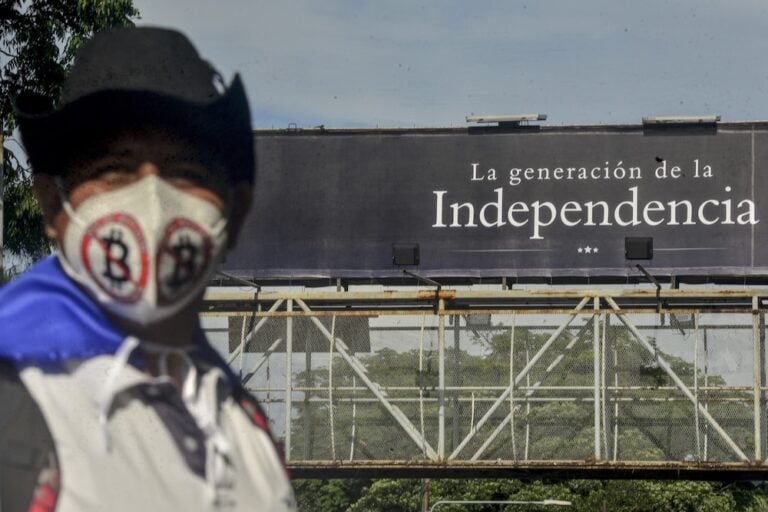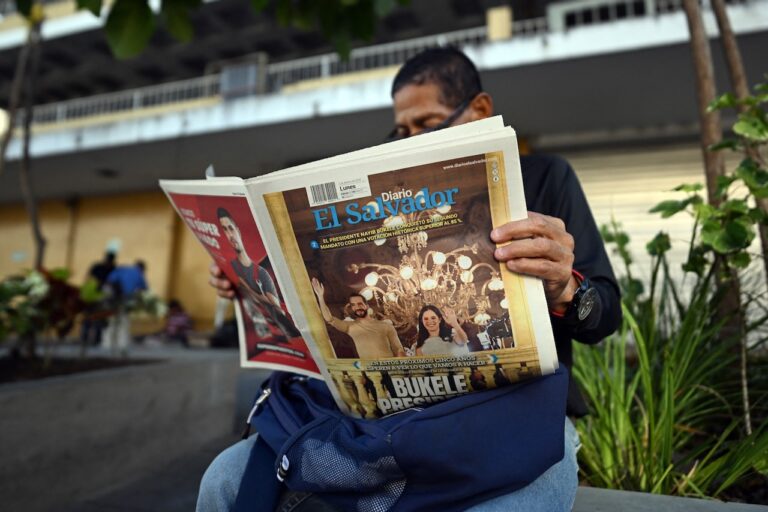Journalists face growing intimidation and censorship under President Bukele's administration, threatening the state of press freedom in El Salvador.
This statement was originally published on cpj.org on 11 October 2024.
Nearly 80,000 people have been detained, and up to 200 may have died in state custody, since El Salvador President Nayib Bukele’s declared a state of emergency in March 2022, temporarily suspending constitutional rights and civil liberties in the country in the name of fighting gang violence.
Local journalists and human rights organizations have raised concerns that Bukele, who described himself as the “world’s coolest dictator,” has repeatedly renewed the state of emergency in a bid to systemically silence dissent and dismantle press freedom through the harassment, intimidation, surveillance of journalists. The Salvadoran Journalists Association (APES) documented 311 attacks, including harassment, doxxing, threats, and criminalization, against journalists in 2023; in the first nine months of 2024, it recorded 165 more attacks, according to APES documentation reviewed by CPJ.
Bukele has defended his record: “Ask the people. It will be incredibly rare to find a negative opinion in the population,” he told Time magazine.
CPJ joined regional press freedom group Inter American Press Association (IAPA) on a fact-finding mission to the country in September to learn about the deteriorating state of independent journalism. This is what it found:
Journalists are subjected to lawsuits and audits
Although criminal prosecution of El Salvadoran journalists is rare compared to neighboring countries Nicaragua and Guatemala, journalists told CPJ that the fear of lawsuits has had a chilling effect on their work.
One lawsuit in particular shocked the local press: in 2023, businessman Jakov Fauster sued El Diario de Hoy and one of its journalists over republished information from the Mexican magazine Proceso. After initially securing a right of reply, Fauster pursued further legal action, demanding a public apology and $10 million in damages. A court ordered the newspaper to publish a second apology and remove the article, but dismissed Fauster’s $10 million claim.
El Faro, known for its investigative reporting, has also faced repeated threats of criminal investigations. Bukele accused the newspaper of money laundering and claimed that authorities were investigating it in 2020, though no formal charges have been filed, according to El Faro news director Óscar Martínez.
The Ministry of Finance has also subjected El Faro, La Prensa Gráfica, and other outlets, to costly audits in what editors and press freedom advocates describe as a bid to undermine their economic sustainability and raise doubts over their administration. Due to fears of being shut down, El Faro moved its administrative operations to Costa Rica, though its newsroom remains in El Salvador.
At least one journalists was arrested and others’ families have been targeted
While in the country, CPJ and IAPA met with El Salvador’s Presidential Commissioner for Human Rights and Freedom of Speech, Andrés Guzmán Caballero. When the two groups raised concerns about the treatment of the press under the state of emergency, Guzmán said the government respected press freedom in the country, claiming that no journalists have been killed or imprisoned since the implementation of the orders.
However, journalist Víctor Barahona’s case tells a different story. Barahona was detained for more than 11 months in 2022 under the state of emergency on accusations that he collaborated with gangs; APES said he was tortured during his time in custody, which CPJ has not independently verified. Upon his May 19, 2023, release, authorities provided no formal documentation nor notified his family. When asked about the case, Guzmán said, “There is an investigation that suggests he is part of a criminal structure. The justice system will not overlook these acts, even if he claims to be a journalist.”
Journalists’ families have also been targeted in connection with their work. Environmental journalist Carolina Amaya’s father, Benjamín Amaya, was arrested on February 28, 2023, under the state of emergency, and charged with illicit association and limiting personal freedom. Ilicit association is the charge typically used for people that are part of gangs, the penalty goes to up 5 years and limiting personal freedom has a prison term for up to 8 years. Although her father was released in December under substitute measures, similar to parole, Amaya reported that her Mala Yerba media outlet faced threats before and after his arrest. She believed the harassment was in retaliation for an investigation her outlet published about contamination in El Salvador’s eastern Lake Coatepeque, in which the president’s mother-in-law was allegedly implicated.
Journalists are surveilled
A joint 2022 report from Citizen Lab and Amnesty International found that Pegasus spyware infected the phones of 35 journalists and civil society members in El Salvador between July 2020 and November 2021. El Faro, whose journalists were among the most frequently targeted, filed a lawsuit in U.S. federal court against NSO Group, the Israeli company that makes Pegasus. The court has not yet decided if it is has jurisdiction in the case.



